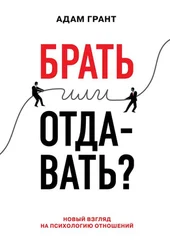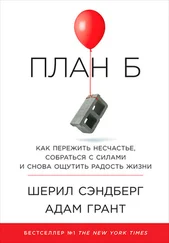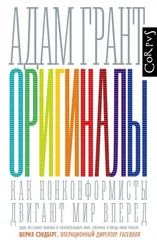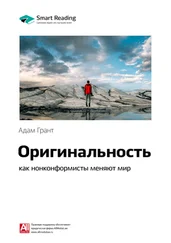Tenelle Porter, «The Benefits of Admitting When You Don’t Know», Behavioral Scientist, April 30, 2018, behavioralscientist.org/the-benefits-of-admitting-when-you-dont-know.
Thomas Gatzka and Benedikt Hell, «Openness and PostSecondary Academic Performance: A Meta-analysis of Facet-, Aspect-, and Dimension-Level Correlations», Journal of Educational Psychology 110 (2018): 355–77.
Tenelle Porter et al., «Intellectual Humility Predicts Mastery Behaviors When Learning», Learning and Individual Differences 80 (2020): 101888.
Bradley P. Owens, Michael D. Johnson, and Terence R. Mitchell, «Expressed Humility in Organizations: Implications for Performance, Teams, and Leadership», Organization Science 24 (2013): 1517–38.
Mark R. Leary et al., «Cognitive and Interpersonal Features of Intellectual Humility», Personality and Social Psychology Bulletin 43 (2017): 793–813.
Samantha A. Deffler, Mark R. Leary, and Rick H. Hoyle, «Knowing What You Know: Intellectual Humility and Judgments of Recognition Memory», Personality and Individual Differences 96 (2016): 255–59.
Bradley P. Owens, Angela S. Wallace, and David A. Waldman, «Leader Narcissism and Follower Outcomes: The Counterbalancing Effect of Leader Humility», Journal of Applied Psychology 100 (2015): 1203–13; Hongyu Zhang et al., «CEO Humility, Narcissism and Firm Innovation: A Paradox Perspective on CEO Traits», Leadership Quarterly 28 (2017): 585–604.
Personal interview with Halla Tómasdóttir, February 27, 2019.
Jaruwan Sakulku, «The Impostor Phenomenon», International Journal of Behavioral Science 6 (2011): 75–97.
Dena M. Bravata et al., «Prevalence, Predictors, and Treatment of Impostor Syndrome: A Systematic Review», Journal of General Internal Medicine 35 (2020): 1252–75.
Basima Tewfik, «Workplace Impostor Thoughts: Theoretical Conceptualization, Construct Measurement, and Relationships with Work-Related Outcomes», Publicly Accessible Penn Dissertations (2019): 3603.
Реакция зависит от пола. В исследовании Басимы с участием специалистов по инвестированию сомнения в себе повышали производительность работы в равной степени среди мужчин и женщин, но мужчины активнее сотрудничали с коллегами. Коллективной деятельностью они компенсировали страх не оправдать ожидания. Женщины больше зависят от уверенности в себе и теряют боевой дух из-за сомнений.
Adam M. Grant and Amy Wrzesniewski, «I Won’t Let You Down … or Will I? Core Self-Evaluations, Other-Orientation, Anticipated Guilt and Gratitude, and Job Performance», Journal of Applied Psychology 95 (2010): 108–21.
See Christine L. Porath and Thomas S. Bateman, «Self-Regulation: From Goal Orientation to Job Performance», Journal of Applied Psychology 91 (2006): 185–92; Samir Nurmohamed, «The Underdog Effect: When Low Expectations Increase Performance», Academy of Management Journal (July 26, 2020), doi.org/10.5465/amj.2017.0181.
See Albert Bandura and Edwin A. Locke, «Negative Self-Efficacy and Goal Effects Revisited», Journal of Applied Psychology 88 (2003): 87–99.
Elizabeth J. Krumrei-Mancuso et al., «Links between Intellectual Humility and Acquiring Knowledge», Journal of Positive Psychology 15 (2020): 155–70.
Danielle V. Tussing, «Hesitant at the Helm: The Effectiveness-Emergence Paradox of Reluctance to Lead» (Ph.D. diss., University of Pennsylvania, 2018).
Edwin A. Locke and Gary P. Latham, «Building a Practically Useful Theory of Goal Setting and Task Motivation: A 35-Year Odyssey», American Psychologist 57 (2002): 705–17; M. Travis Maynard et al., «Modeling Time-Lagged Psychological Empowerment-Performance Relationships», Journal of Applied Psychology 99 (2014): 1244–53; Dana H. Lindsley, Daniel J. Brass, and James B. Thomas, «Efficacy-Performance Spirals: A Multilevel Perspective», Academy of Management Review 20 (1995): 645–78.
Frasier, season 2, episode 12, «Roz in the Doghouse», January 3, 1995, NBC.
Henry A. Murray, «Studies of Stressful Interpersonal Disputations», American Psychologist 18 (1963): 28–36.
Richard G. Adams, «Unabomber», The Atlantic, September 2000, «Letters», www.theatlantic.com/magazine/archive/2000/09/letters/378379.
Alston Chase, A Mind for Murder: The Education of the Unabomber and the Origins of Modern Terrorism (New York: W. W. Norton, 2004).
Murray S. Davis, «That’s Interesting!: Toward a Phenomenology of Sociology and a Sociology of Phenomenology», Philosophy of Social Science 1 (1971): 309–44.
Sarah T. Stewart, «Where Did the Moon Come From? A New Theory», TED Talks, February 2019, www.ted.com/talks/sarah_t_stewart_where_did_the_moon_come_from_a_new_theory.
Lesley Evans Ogden, «The Tusks of Narwhals Are Actually Teeth That Are Inside-Out», BBC, October 26, 2015, www.bbc.com/earth/story/20151026-the-tusks-of-narwhals-are-actually-teeth-that-are-inside-out.
Anthony G. Greenwald, «The Totalitarian Ego: Fabrication and Revision of Personal History», American Psychologist 35 (1980): 603–18.
Richard P. Feynman, «Surely You’re Joking, Mr. Feynman!»: Adventures of a Curious Character (New York: W. W. Norton, 1985), and «Cargo Cult Science», Caltech Commencement, 1974, calteches.library.caltech.edu/51/2/CargoCult.htm.
«Text of Unabomber Manifesto», New York Times, May 26, 1996, archive.nytimes.com/www.nytimes.com/library/national/unabom-manifesto-1.html.
Jonas T. Kaplan, Sarah I. Gimbel, and Sam Harris, «Neural Correlates of Maintaining One’s Political Beliefs in the Face of Counterevidence», Scientific Reports 6 (2016): 39589.
Joseph LeDoux, The Emotional Brain: The Mysterious Underpinnings of Emotional Life (New York: Simon & Schuster, 1998); Joseph Cesario, David J. Johnson, and Heather L. Eisthen, «Your Brain Is Not an Onion with a Tiny Reptile Inside», Current Directions in Psychological Science 29 (2020): 255–60.
Elizabeth Kolbert, «Why Facts Don’t Change Our Minds», New Yorker, February 27, 2017, www.newyorker.com/magazine/2017/02/27/why-facts-dont-change-our-minds.
Eli Pariser, The Filter Bubble: How the New Personalized Web Is Changing What We Read and How We Think (New York: Penguin, 2011).
ideas42 Behavioral Summit, New York, NY, October 13, 2016.
Personal interview with Daniel Kahneman, June 13, 2019.
Я изучал факторы, объясняющие, почему в издательстве путеводителей, где я тоже трудился, одни авторы и редакторы работали лучше других. Производительность не была связана с независимостью, контролем, уверенностью, трудностями, связями, сотрудничеством, конфликтами, поддержкой, самооценкой, стрессом, отзывами, должностными обязанностями и удовольствием от работы. Эффективнее работали те, кто хотел приносить пользу своей деятельностью. Это привело меня к предположению, что великодушные люди успешнее эгоистичных, потому что ими движет желание сделать мир лучше. Я получил подтверждение этой гипотезе в ряде исследований, но потом наткнулся на результаты других работ, в которых великодушию сопутствовала низкая производительность и раннее выгорание. Я не бросился их опровергать, а подумал и понял, что это я неправ: у меня было недостаточно информации. Я начал изучать, в каких случаях великодушные люди терпят крах и приходят к успеху. Так появилась моя первая книга «Брать или отдавать?».
Читать дальше
Конец ознакомительного отрывка
Купить книгу












